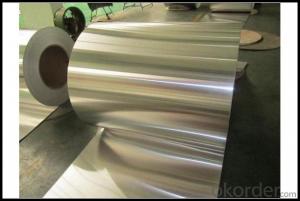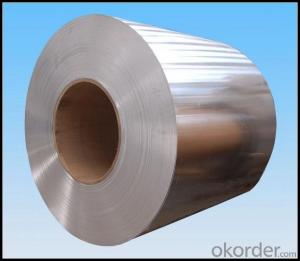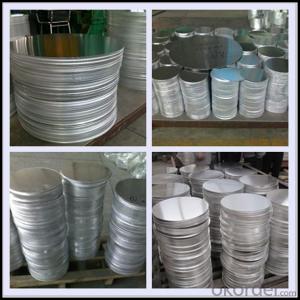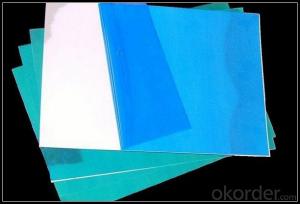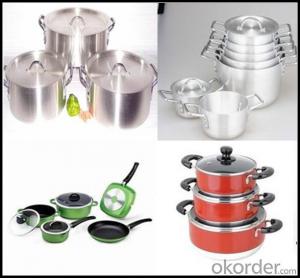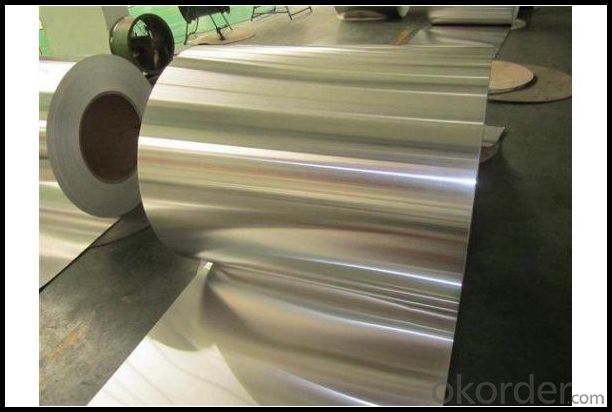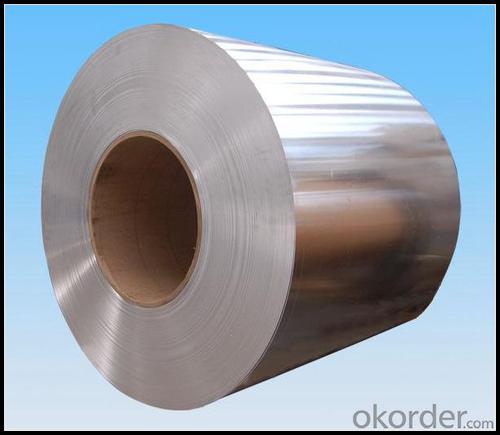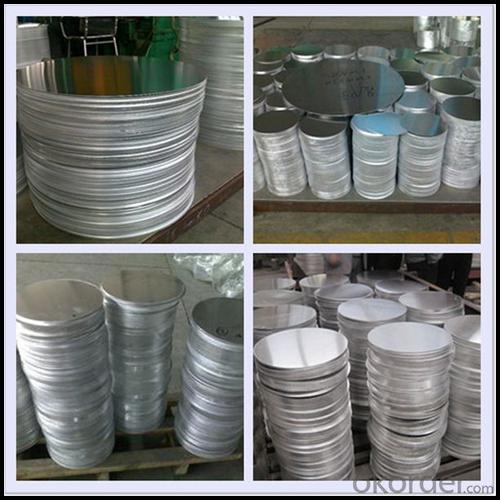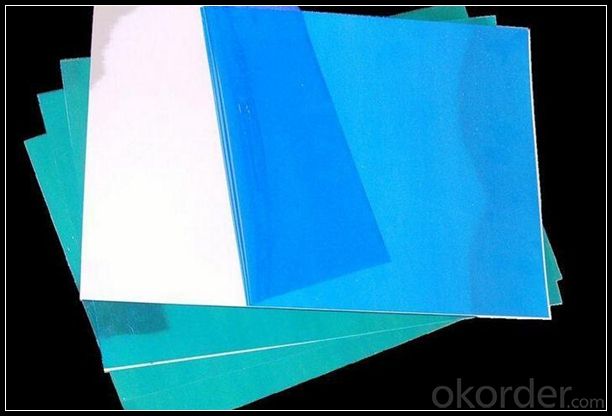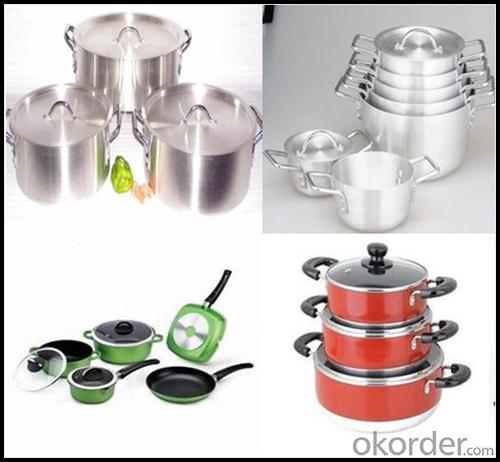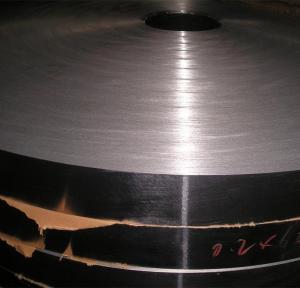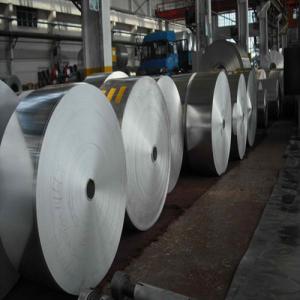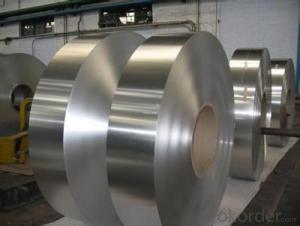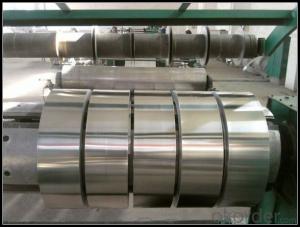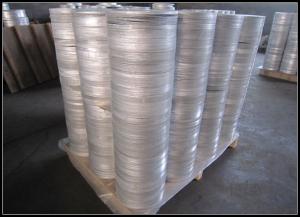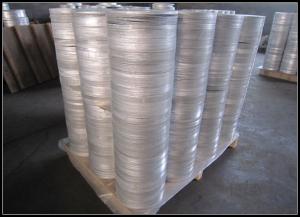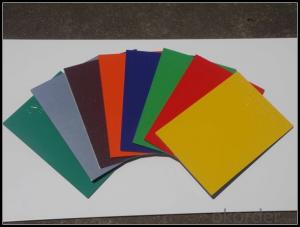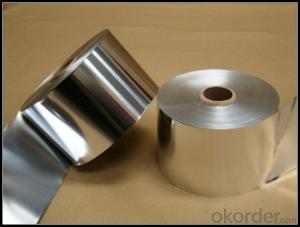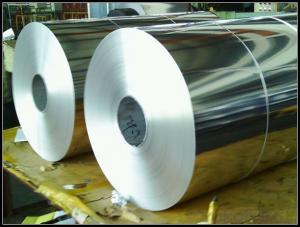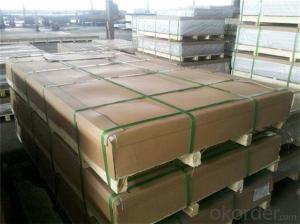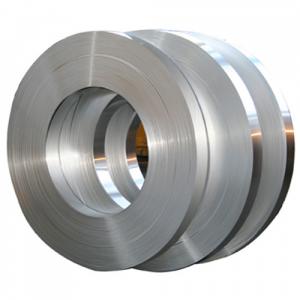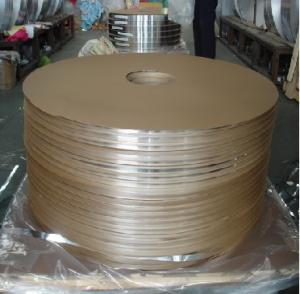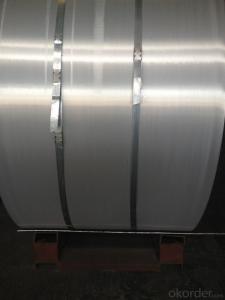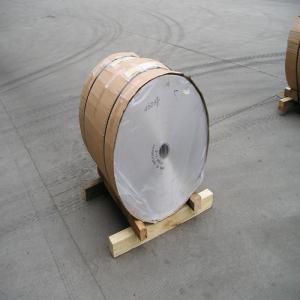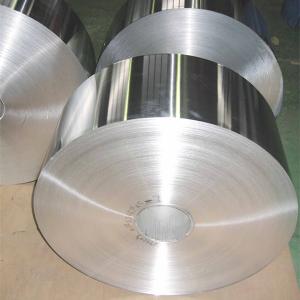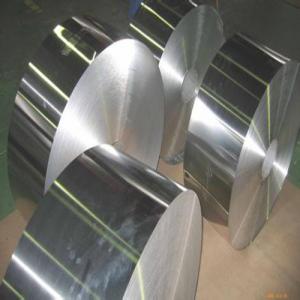Factory Hot Sale Colour Coated Aluminium Sheet for 2 Inch Wide Aluminum Strips
- Loading Port:
- Tianjin
- Payment Terms:
- TT OR LC
- Min Order Qty:
- 1 m.t.
- Supply Capability:
- 4999 m.t./month
OKorder Service Pledge
OKorder Financial Service
You Might Also Like
Specification
1. Specification of Aluminum
1) Alloy | 1050, 1060,1100, 3003 3004 3105 3005 5005 5052 etc |
2) Temper | O/H12/H14/H1/H18/H32/H34/H36/H38//H111/H112/H116/H321/T6/T651/T3/T351 etc |
3) Thickness | 0.1mm to 6mm |
4) Width | 20mm to 3300mm |
5) Coil weight | 100kgs to 6 tons depends on actual requirement |
6) Core material | Aluminum alloy |
7) Coil Inner diameter | 76mm, 152mm,or as required |
2. Application of Aluminum
(1).Interior: wall cladding, ceilings, bathrooms, kitchens and balconies, shutters, doors...
(2).Exterior: wall cladding, facades, roofing, canopies, tunnels,column covers , renovations...
(3).Advertisement: fascia, shop fronts...
3. Feature of Aluminum
The low melting point of aluminium alloys has not precluded their use in rocketry; even for use in constructing combustion chambers where gases can reach 3500 K. The Agena upper stage engine used a regeneratively cooled aluminium design for some parts of the nozzle, including the thermally critical throat region.
Be free from Oil Stain, Dent, Inclusion, Scratches, Stain, Oxide Dicoloration, Breaks, Corrosion, Roll Marks, Dirt Streaks and other defect which will interfere with use
4. Certificate:
SGS and ROHS(if client request, paid by client), MTC(plant provided), Certificate of Origin(FORM A, FORM E, CO), Bureau Veritas and SGS (if client request, paid by client), CIQS certificate
5. Image of Aluminum
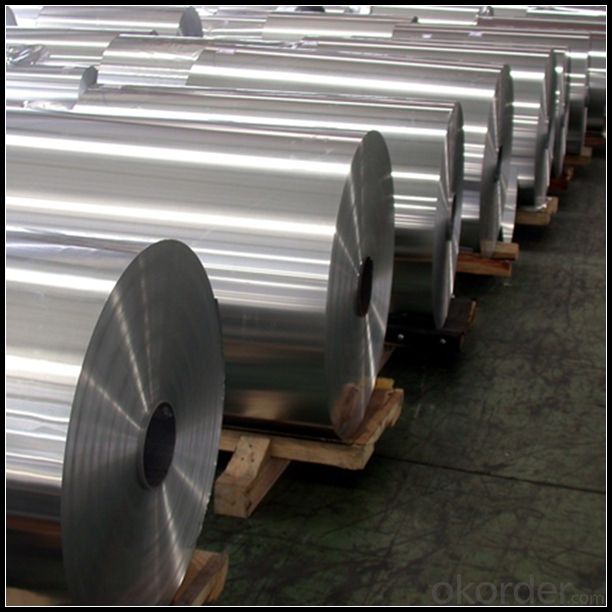
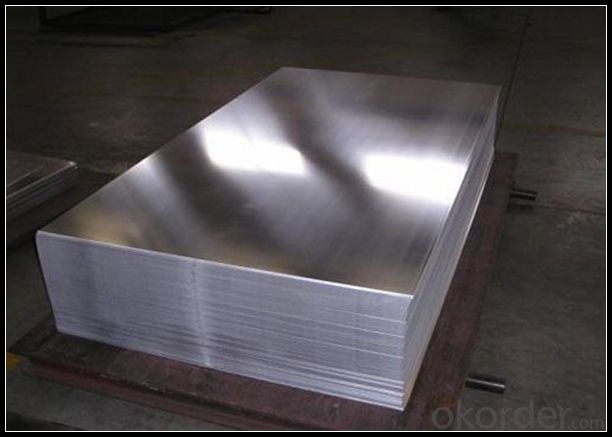
6. Our Service
1. Reply your enquiry in 24 working hours. |
2. OEM, buyer design, buyer label services provided. |
3. Exclusive and unique solution can be provide to our customer by our well traned and professional engineers and staffs. |
4. We can provide free sample for your check |
5. We have the certification of ISO 9001 |
6. Timely delivery |
7. Special discount and protection of sales area provided to our distributor. |
8. Good after-sale service. |
7. FAQ
Q: What is the produce prase? | ||||
A: Normally it would be 40days after received your deposit. | ||||
Q: Can you provide free samples? | ||||
A: Yes, free samples will be sent to you on freight at destination. | ||||
Q: Can I get your latest catalogue? | ||||
A: Yes, it will be sent to you in no time. | ||||
Q: What is the MOQ? | ||||
A: 3 tons | ||||
Q: What are your payment terms? | ||||
A: We accept L/C, D/A, D/P, T/T, West Union,etc. |
- Q: This question asks for a method to measure the thickness of aluminum siding material.
- <p>To determine the thickness of aluminum siding, you can use a digital caliper or a micrometer, which are precise measuring tools. Place the caliper or micrometer at the edge of the siding, ensuring it's perpendicular to the surface, and take a measurement. Another method is to use a magnetic thickness gauge if the siding is coated, as this tool can measure the thickness of non-magnetic coatings on magnetic metals. Always check the manufacturer's specifications for the siding as well, as they often provide thickness information.</p>
- Q: What are the environmentally friendly options for aluminum strips?
- <p>Yes, there are environmentally friendly types of aluminum strips. Recycled aluminum strips are more eco-friendly as they require significantly less energy to produce compared to virgin aluminum. Additionally, using aluminum strips with a high recycled content reduces waste and conserves natural resources. Another option is to look for aluminum strips that are produced using renewable energy sources, which further reduces their carbon footprint. Lastly, choosing aluminum strips with a lower coating or treatment that is biodegradable or has a lower environmental impact can also contribute to their environmental friendliness.</p>
- Q: What types of aluminum strips are better suited for specific uses?
- <p>Yes, different types of aluminum strips are more suitable for specific applications based on their properties. For instance, 1100 series aluminum strips are pure and have excellent formability, making them ideal for deep drawing applications. 3003 series strips are commonly used for chemical equipment, shipbuilding, and aircraft structures due to their good corrosion resistance and weldability. 5052 series strips are known for their high strength and are often used in marine applications and transportation vehicles. 6061 series strips are popular for structural applications requiring strength and good corrosion resistance, such as in the construction and automotive industries. The choice of aluminum strip depends on the specific requirements of the application, including strength, formability, corrosion resistance, and environmental factors.</p>
- Q: This question asks for the standard cost range of aluminum strip stock, which is a type of metal material.
- <p>The typical price range for aluminum strip stock can vary significantly based on factors such as grade, thickness, width, and market conditions. As of recent market trends, prices can range from approximately $1.50 to $3.00 per pound for common grades like 1100 or 3003. However, for more specialized grades or custom specifications, the cost can be higher, potentially ranging from $2.00 to $5.00 per pound or more. It's important to note that these prices are subject to change due to fluctuations in the global aluminum market and should be verified with a supplier for the most accurate and current pricing.</p>
- Q: This question asks for an explanation of the corrosion protection mechanism provided by aluminum strips.
- <p>Aluminum strips protect against corrosion through a process known as sacrificial anode cathodic protection. When aluminum is exposed to an electrolyte (like soil or water), it naturally forms a thin, protective oxide layer on its surface. This layer prevents further oxidation. In a galvanic cell, aluminum acts as the anode and corrodes preferentially, sacrificially protecting the cathode, which is usually a more noble metal like steel. The aluminum strip corrodes instead of the steel, thus preventing the steel from corroding. This method is effective because aluminum is more reactive than steel, and it corrodes at a slower rate once the initial protective layer is formed, making it a sustainable protection method.</p>
- Q: Does aluminum corrode in a manner similar to rusting?
- <p>Aluminum does not rust in the same way as iron or steel. Instead, aluminum reacts with oxygen in the air to form a thin, protective layer of aluminum oxide on its surface. This oxide layer prevents further corrosion, unlike rust which can compromise the integrity of iron and steel. While aluminum can tarnish or become discolored due to exposure to certain elements or chemicals, it does not rust in the traditional sense.</p>
- Q: Is it possible to recycle aluminum strips more than once?
- <p>Yes, aluminum strips can be recycled multiple times. Recycling aluminum is an efficient process that retains much of the metal's original properties, allowing it to be reused in various applications. The recycling process reduces energy consumption and environmental impact compared to producing aluminum from raw materials. Each time aluminum is recycled, it can be remelted and reformed without significant loss in quality, making it one of the most sustainable materials for recycling.</p>
- Q: The user is inquiring if it's possible to utilize recycled aluminum for their roofing project.
- <p>Yes, you can use recycled aluminum for your roofing project. Recycled aluminum is not only environmentally friendly but also cost-effective. It retains the same strength and durability as new aluminum, making it an excellent choice for roofing. It's lightweight, resistant to corrosion, and can be easily shaped and installed. Additionally, using recycled aluminum helps reduce waste and conserves natural resources. However, it's important to ensure that the recycled material meets quality standards and is sourced from a reputable supplier to guarantee its performance and longevity.</p>
- Q: The user is asking if it is possible to apply paint or stain to aluminum siding after it has been installed.
- <p>Yes, you can paint or stain aluminum siding after installation, but it requires proper preparation. The surface must be thoroughly cleaned to remove any dirt, grease, or factory applied oils. A high-quality primer compatible with aluminum is essential before applying paint or stain. Use a paint or stain specifically designed for metal surfaces to ensure adhesion and durability. Always follow the manufacturer's instructions for the best results.</p>
- Q: Is it possible to use aluminum strips for the exterior walls of a building?
- <p>Yes, aluminum strips can be used for exterior walls. They are lightweight, durable, and resistant to corrosion, making them suitable for cladding and facades. Aluminum strips can also be coated with various finishes to enhance their appearance and protect against weathering. They are commonly used in modern architecture for both aesthetic and functional purposes, offering a sleek and contemporary look while providing insulation and weather protection.</p>
Send your message to us
Factory Hot Sale Colour Coated Aluminium Sheet for 2 Inch Wide Aluminum Strips
- Loading Port:
- Tianjin
- Payment Terms:
- TT OR LC
- Min Order Qty:
- 1 m.t.
- Supply Capability:
- 4999 m.t./month
OKorder Service Pledge
OKorder Financial Service
Similar products
Hot products
Hot Searches
Related keywords
